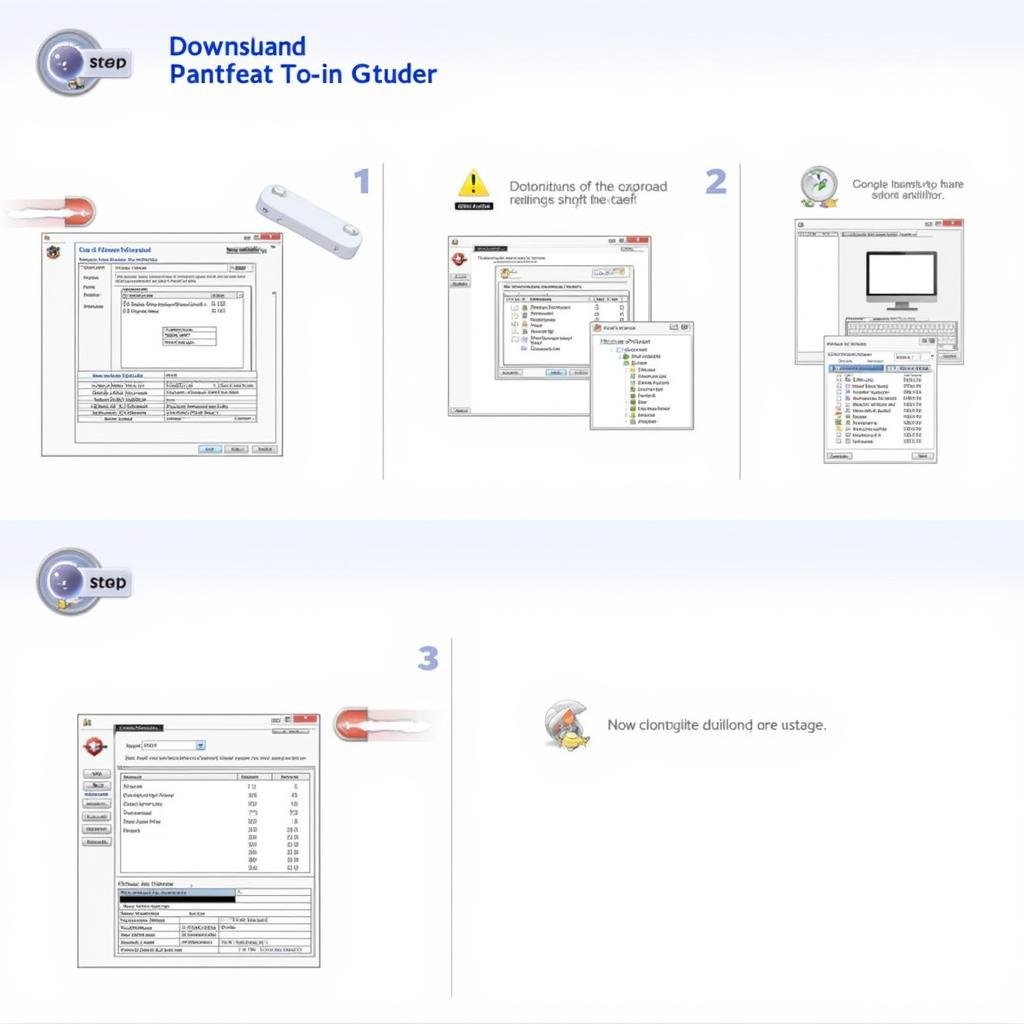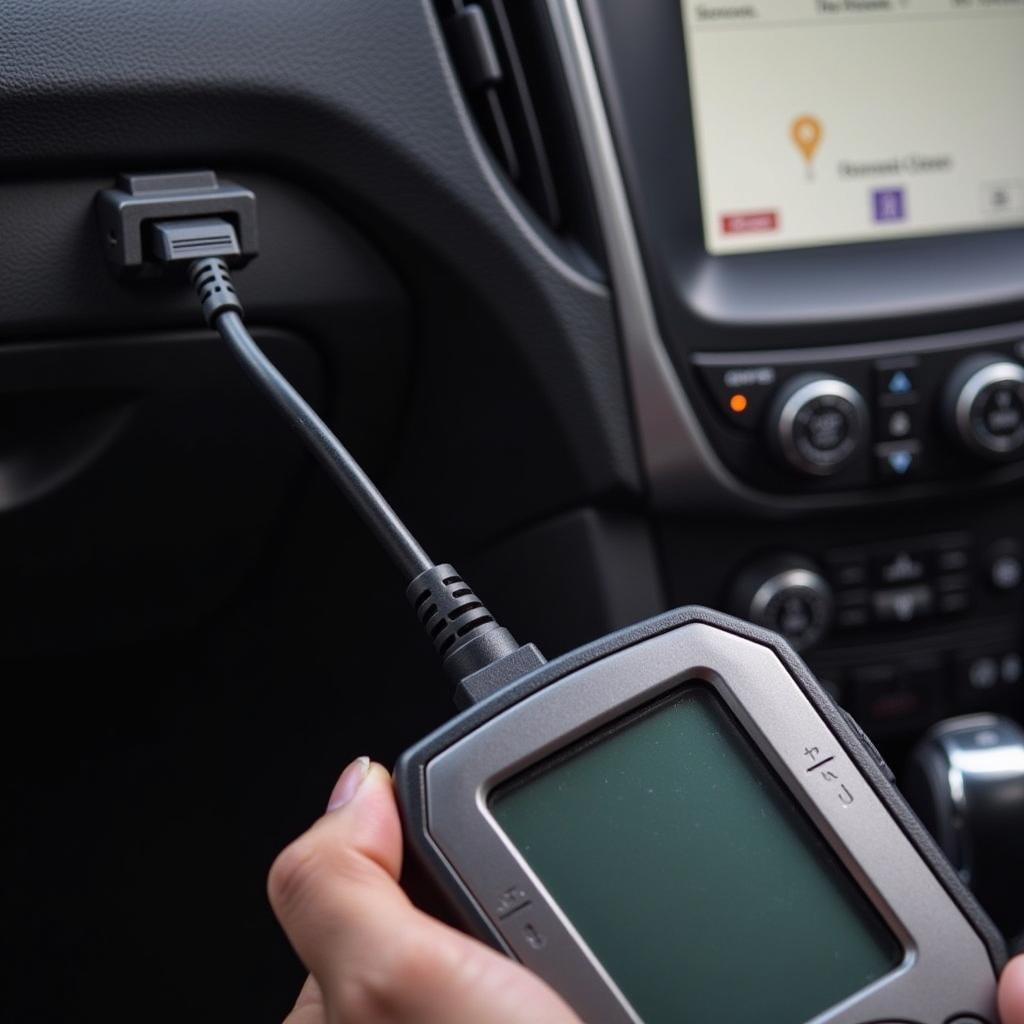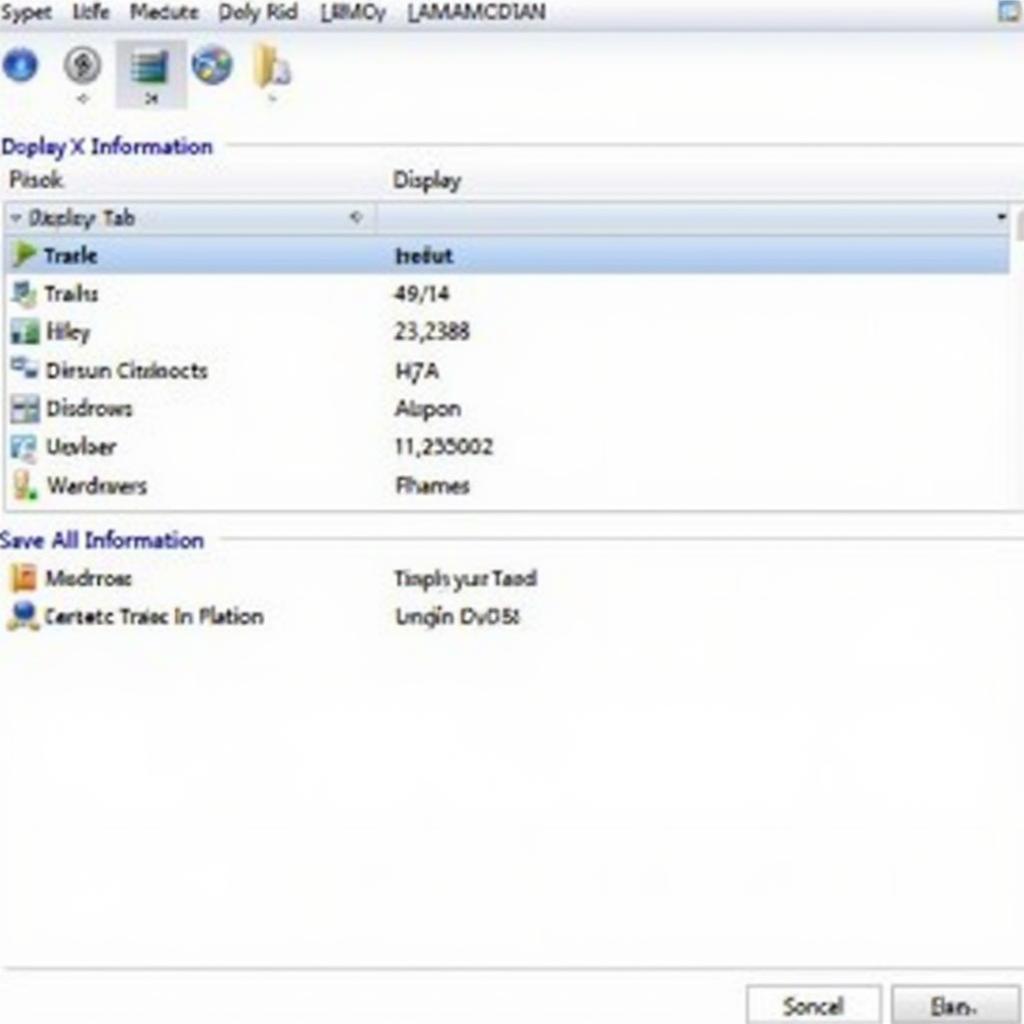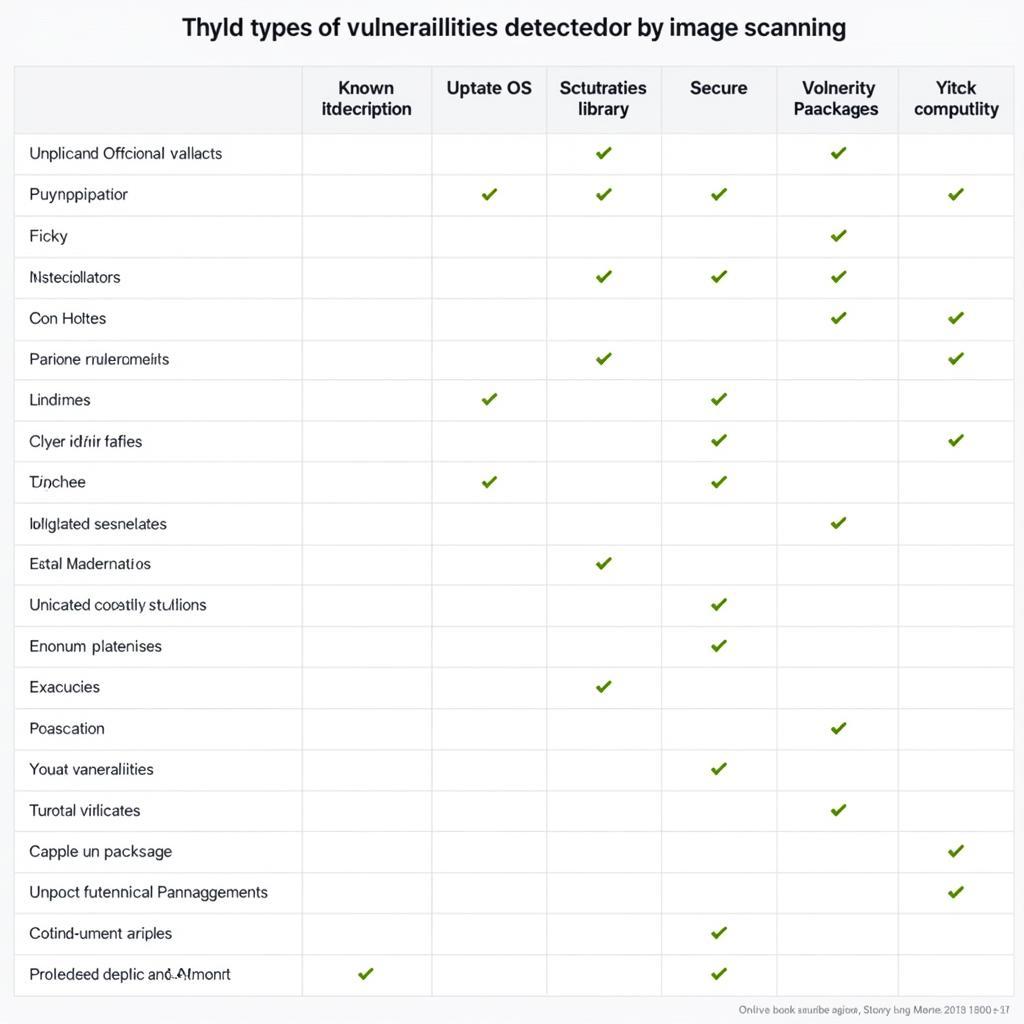A car scanner tool can be a lifesaver when your car decides to throw a tantrum. But what happens when the tool itself seems to be the problem? There you are, ready to dive into the mystery of your check engine light, only to find your trusty car scanner tool is acting up. Before you toss it out the window (we’ve all been there), let’s explore the signs that your car scanner tool might not be up to the task.
Common Signs Your Car Scanner Tool Needs a Check-Up
While a completely dead scanner is an obvious sign of trouble, there are more subtle hints that something isn’t right. Keep an eye out for these red flags:
- Connection Issues: Can’t seem to get a stable connection between your scanner and your car’s OBD-II port? This is a major indicator that something’s amiss. It could be a faulty cable, a problem with the port itself, or even an issue with the scanner’s software.
- Cryptic Error Messages: We’ve all seen them – those frustrating error codes that seem to be written in a foreign language. If your scanner is spitting out nonsensical codes or messages that don’t align with your car’s symptoms, it’s time to investigate.
- Frozen Screens and Glitches: Technology can be fickle, and car scanners are no exception. A screen that freezes, buttons that don’t respond, or random reboots all point towards a scanner on the fritz.
- Incomplete Data: One of the main reasons to use a plug in car scanner is to access detailed diagnostic information. If you’re only getting partial data, or if the information seems inaccurate, your scanner might be the culprit.
- Incompatibility Issues: The automotive world is constantly evolving, and older scanners might not play well with newer car models. If you’ve recently upgraded your ride and your trusty scanner is struggling to keep up, it might be time for an upgrade in the tool department too.
Troubleshooting Tips: Can You Salvage Your Scanner?
Before you declare your car scanner tool dead and buried, try these troubleshooting tips:
-
Check the Obvious: It sounds simple, but sometimes the simplest solutions are the most effective. Ensure all cables are securely connected, the OBD-II port is clean and free of debris, and the scanner’s battery is charged or has fresh batteries.
-
Consult the Manual: Remember that dusty old manual that came with your scanner? Now’s the time to dust it off. It might hold valuable troubleshooting information specific to your scanner model.
-
Update the Firmware: Just like your smartphone, car scanners often have firmware updates that can improve performance and compatibility. Check the manufacturer’s website for the latest updates.
-
Contact Support: If all else fails, don’t hesitate to reach out to the scanner manufacturer’s customer support. They might be able to diagnose the problem remotely or guide you through more advanced troubleshooting steps.
When to Call it quits: Knowing When You Need a New Scanner
Sometimes, despite your best efforts, a car scanner tool is beyond repair. Here are a few signs it’s time to invest in a new one:
- Physical Damage: If your scanner has taken a tumble or suffered water damage, it’s probably time to say goodbye.
- Outdated Technology: Technology moves fast, and an outdated scanner might not be compatible with newer car models or provide access to the latest diagnostic features.
- Cost of Repair Outweighs Replacement: If the cost of repairing your scanner is approaching the price of a new one, it’s often more economical to simply bite the bullet and upgrade.
“Investing in a reliable car scanner is crucial for any home mechanic or professional technician,” says John Smith, Senior Automotive Engineer at CARW Workshop. “It’s important to choose a tool that’s compatible with your vehicle and offers the features you need to diagnose and repair issues effectively.”
Choosing the Right Scanner: Don’t Get Lost in the Options
The world of car scanners can feel like a maze, but choosing the right one doesn’t have to be overwhelming. Consider these factors:
- Your Skill Level: Are you a DIY enthusiast or a seasoned pro? Scanners range from basic code readers to advanced professional-grade tools.
- Vehicle Compatibility: Ensure the scanner you choose supports the make, model, and year of your vehicle (and any future vehicles you plan to own).
- Features: Do you need basic code reading capabilities, or are you looking for advanced features like live data streaming, bi-directional controls, and special functions?
- Budget: Car scanners can range in price from affordable to wallet-draining. Determine your budget and stick to it.
Don’t Let a Faulty Scanner Leave You Stranded
A car scanner tool is an essential tool for any car owner or mechanic, but it’s only useful if it’s working correctly. By understanding the signs of a failing scanner and knowing when to replace it, you can avoid frustration and ensure you’re equipped to tackle any car troubles that come your way.
“Regular maintenance and timely replacement of your car scanner, just like any other tool, will save you from potential headaches down the road,” adds Smith. “It’s always better to be prepared than to be caught off guard when you need it the most.”
For expert advice on choosing the right cat class 8 scan tool or if you have any questions about car diagnostic tools, contact the team at CARW Workshop at +1 (641) 206-8880 or visit our office at 4 Villa Wy, Shoshoni, Wyoming, United States. We’re here to help!






